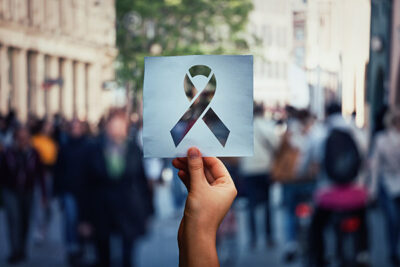 HIV stands for Human Immunodeficiency Virus.
HIV stands for Human Immunodeficiency Virus.
HIV infects the immune system which protects us from illnesses.
The virus attaches itself to immune system cells called CD4 lymphocyte cells, which protect the body against various bacteria, viruses, and other germs. Once attached, if left untreated, HIV enters the CD4 cells and makes thousands of copies of itself.
These copies then leave the CD4 cells, killing them in the process. If this continues, so much damage is caused that it is impossible for a body to fight off day-to-day infections and your immune system stops working.
This process may take up to 10 years, during which time you might feel and appear well.
Effective HIV treatment stops this process, allowing most individuals to live healthy and full lifespans.
 HIV is difficult to transmit.
HIV is difficult to transmit.
It lives in blood and in some bodily fluids. The virus does not spread through the air like cold and flu viruses. To acquire HIV, the bodily fluids of someone infected with the virus must get into your blood stream.
The body fluids that contain enough HIV to infect someone are:
- semen
- vaginal fluid
- menstrual blood
- breast milk
The main ways the virus enters the bloodstream are:
- through the thin lining on or inside the anus, vagina, or genitals
- through the thin lining of the mouth or eyes
- by injecting into the bloodstream with needles or injecting equipment that's been shared with other people
- through cuts and sores in the skin
In the UK, Belgium and the Netherlands, HIV is usually transmitted by having unprotected penetrative vaginal or anal sex with someone who has the virus.
HIV can be transmitted via oral sex, but the risk is much lower.
The risk of oral sex is higher if:
- the person giving oral sex has mouth ulcers, sores, or bleeding gums
- the person receiving oral sex has recently been infected with HIV and has a lot of the virus in their body, or another sexually transmitted infection.
Rarely, HIV can also be transmitted via needle-stick injuries or intravenous drug users sharing needles, or via blood transfusions in areas of the world that do not test donated blood for HIV.
HIV is not passed on through:
- spitting
- kissing
- being bitten
- contact with unbroken, healthy skin
- being sneezed on
- sharing baths, towels or cutlery
- using the same toilets or swimming pools
- mouth-to-mouth resuscitation
- contact with animals or insects like mosquitoes.
U=U is a campaign which shows how the sexual transmission of HIV can be stopped.
If someone is on effective HIV treatment, meaning the amount of HIV in the blood is so low that it is undetectable, it is not possible for that person to pass HIV to someone else, even if they have unprotected sex.
More information about U=U.
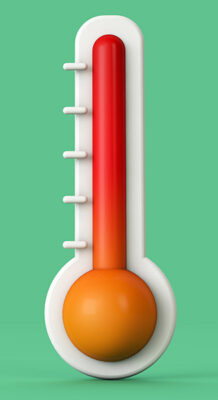 Around 80 per cent of people infected with HIV will have a flu-like illness between two to six weeks following exposure to the virus. Symptoms can last up to two weeks as your body is trying to fight the virus.
Around 80 per cent of people infected with HIV will have a flu-like illness between two to six weeks following exposure to the virus. Symptoms can last up to two weeks as your body is trying to fight the virus.
The most common symptoms are:
- raised temperature (fever)
- sore throat
- body rash.
Other symptoms can include:
- tiredness
- joint pain
- muscle pain
- swollen glands.
Note: Having flu-like symptoms does not mean you have HIV. Flu-like symptoms are caused by many other illnesses, too.
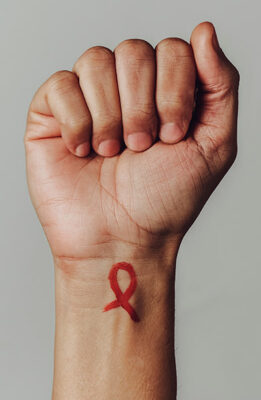 After the initial illness, HIV may not cause any further symptoms for many years, which is why many people are not aware they are HIV positive.
After the initial illness, HIV may not cause any further symptoms for many years, which is why many people are not aware they are HIV positive.
If left untreated, the virus remains active in your body and causes lasting damage to your immune system. For up to ten years, you can look and feel fine. It is during this time you are most likely to transmit HIV without knowing it.
Once the immune system becomes severely damaged, symptoms can include:
- weight loss
- chronic diarrhoea
- night sweats
- skin problems
- recurrent infections
- serious life-threatening illnesses
Earlier diagnosis and treatment of HIV can prevent these problems.
 Testing for HIV
Testing for HIV
Testing is the only way to know for sure whether you have HIV.
HIV testing is free in the UK on the NHS.
You can get an HIV test via:
- Via a home testing kit (available in most areas in the UK)
- Via most GP surgeries
- At a sexual health or Genito-Urinary Medicine (GUM) clinic
- At a community testing clinic run by sexual health charities, like metrocharity.org.uk
- Drug dependency services
- Antenatal Clinics
- Privately, though you will have to pay
An HIV test can either be done:
- via an instant finger-prick test at a clinic. If HIV is indicated, further testing is needed
- Via a finger-prick test you complete yourself as part of a home testing kit If HIV is indicated, further testing is needed
- a blood sample taken by a doctor, nurse, or health professional
Find HIV testing services near you.
Treatment for HIV
If it has been confirmed that you have HIV, you will be referred to an HIV specialist team. Your HIV consultant will discuss with you the best approach to care.
HIV treatment is known as Anti-Retroviral Treatment (ART). ART prevents the virus from replicating in the blood. Once you begin ART, you cannot stop it. Your consultant will work with you to agree when to start.
The following factors will influence your treatment plan:
- Your relationship status
- Your other health conditions
- Your lifestyle
- How advanced the illness is
- Whether you are pregnant, or likely to become pregnant, or breastfeeding
- Your personal preference
There have been significant advances in the effectiveness of HIV treatment, and many of the side-effects of treatment have been minimised. For many individuals, it is now possible to take one or two pills a day.
Many people taking treatment for HIV live a long and healthy life like anyone else. Early diagnosis to get the right specialist care and support as soon as possible is key.
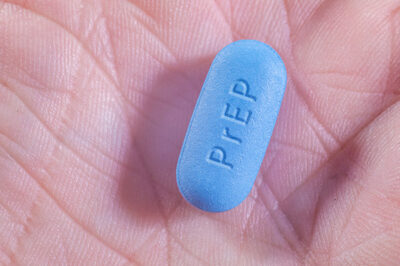 Condoms and lube
Condoms and lube
Using a condom for penetrative vaginal or anal sex is the best way to prevent HIV transmission.
Using condoms is particularly important when you are having sexual contact with a partner or partners whose HIV status is unknown to you.
Use water-based or silicone-based lubricant – particularly for anal or vaginal sex – helps to prevent tears in the skin and to keep condoms from breaking. This in turns helps reduce the likelihood HIV will be transmitted.
If you do not know your HIV status, we recommend that you test for HIV before having unprotected sex, to avoid unknowingly transmitting the virus.
PEP
PEP, or Post-Exposure Prophylaxis, is a form of HIV-treatment that can prevent HIV infection even after the virus has entered the body.
PEP must be taken within 72 hours of possible exposure; the earlier the better and within 24 hours is ideal. PEP is not guaranteed to work.
PEP is free on the NHS, but due to cost and because it is a powerful course of drugs that must be taken for 28 days, PEP is only given to certain people. Find out if you are at risk and might be eligible.
The best place to get PEP is via a sexual health clinic or HIV clinic. If you need PEP over the weekend or outside of office hours, you can go to any A&E. Find a PEP provider clinic.
PrEP
PrEP, or Pre-Exposure Prophylaxis for HIV, is an HIV prevention method that works by taking a pill on an ongoing basis before and after sex. The pill is an anti-retroviral drug, which is the same medication taken by people who are HIV positive.
PrEP is taken by people who do not have HIV, but whose lifestyles place them at risk of HIV. This includes:
- Gay and bisexual men, particularly those who have multiple sexual partners or who engage in chemsex
- Anyone with an HIV-positive partner whose viral load is detectable or unknown
- Anyone whose partner(s) refuse to wear condoms, and whose HIV status is unknown or high-risk
- Anyone likely to have unprotected sex with an individual or individuals who are high-risk for HIV
- Anyone who shares needles to inject drugs or hormones, or who has an injection partner with HIV
For more information about PrEP, including how to obtain it in the UK, click here.
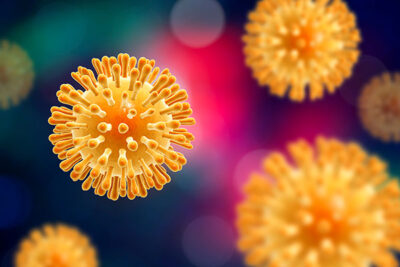 If left untreated, HIV can cause AIDS. AIDS stands for Acquired Immune Deficiency Syndrome. AIDS is the most advanced stage of HIV infection.
If left untreated, HIV can cause AIDS. AIDS stands for Acquired Immune Deficiency Syndrome. AIDS is the most advanced stage of HIV infection.
AIDS is the name used to describe a number of potentially life-threatening infections and illnesses that happen when your immune system has been severely damaged by the HIV virus.
Thanks to effective testing and treatment, very few people in the UK now develop AIDS.
While AIDS cannot be transmitted from one person to another, the HIV virus can. HIV causes AIDS by attacking the immune system. The infected individual is less able to fight off infection and can develop serious, often deadly, infections. These are called opportunistic infections - because they take advantage of the body's weakened defences.
You don't have AIDS as soon as you are infected with HIV. You can have HIV for many years with no signs of disease, or only mild-to-moderate symptoms. But without treatment, HIV will eventually wear down the immune system in most people to the point that they develop more serious infections. At this point, it is considered that HIV has become AIDS. In some cases, with effective treatment, AIDS can be reversed, though an HIV-positive individual will always have HIV.
With an early diagnosis and effective treatments, most people with HIV will not develop any AIDS-related illnesses and will live a near-normal lifespan.
When someone “dies of AIDS”, it is usually other infections or long-term effects of HIV infection that cause death, for example pneumonia. AIDS itself is not a cause of death.
